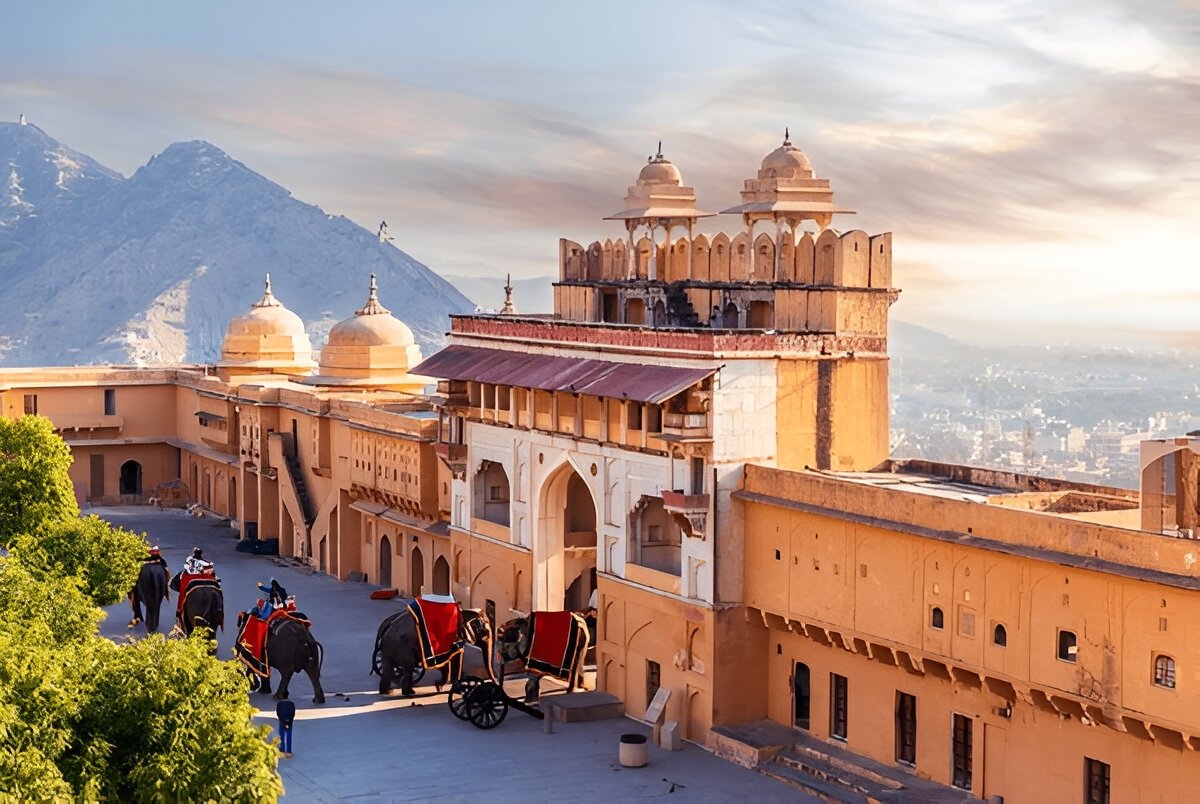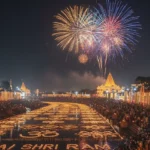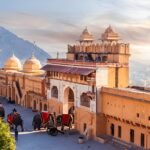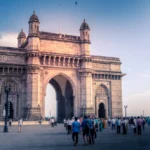
🌏 Best Time to Visit India – The Ultimate Month-by-Month Travel Guide
India is a country of many seasons, countless colors, and infinite stories. Whether you dream of snow-covered Himalayas, the golden deserts of Rajasthan, or the tropical beaches of Goa, the best time to visit India depends on what kind of traveler you are — and where you want to go.
This guide by Travel Indica will help you plan your perfect India trip with insights into the best season, weather, and experiences month by month.
🕒 Understanding India’s Travel Seasons
India has three major travel seasons:
Winter (October – March): Cool, pleasant, and perfect for sightseeing — the best time to visit most parts of India.
Summer (April – June): Hot but ideal for exploring hill stations and mountain regions.
Monsoon (July – September): Lush green landscapes, fewer crowds, and great for offbeat travelers.
🌤️ Winter (October to March) – The Best Season to Visit India
If you’re visiting India for the first time, winter is the best time to travel. The weather is comfortable, skies are clear, and festivals like Diwali, Holi, and Christmas make the experience vibrant.
Top Destinations in Winter:
Rajasthan: Jaipur, Udaipur, Jodhpur, Jaisalmer – the desert looks magical in cooler weather.
Golden Triangle (Delhi, Agra, Jaipur): Ideal temperature to explore monuments like the Taj Mahal.
Goa & Kerala: Perfect for beach holidays and backwater cruises.
Varanasi & Rishikesh: Spiritual experiences are most pleasant during this time.
Himalayas (Shimla, Manali): Enjoy snow and mountain adventures.
Average Temperature: 10°C to 25°C
Best For: Sightseeing, cultural tours, wildlife safaris, honeymoon trips.
☀️ Summer (April to June) – Escape to the Hills
Summer in India can be intense in the plains but heavenly in the mountains. This is the best time to visit North India’s hill stations.
Top Destinations in Summer:
Leh-Ladakh: Breathtaking Himalayan views and adventure roads.
Himachal Pradesh: Manali, Dharamshala, Shimla, Spiti Valley.
Uttarakhand: Mussoorie, Nainital, Auli.
Northeast India: Meghalaya, Sikkim, and Arunachal Pradesh are cool and scenic.
Average Temperature: 25°C to 40°C (lower in hills)
Best For: Trekking, road trips, photography, adventure tours.
🌧️ Monsoon (July to September) – For Nature Lovers and Peace Seekers
Monsoon transforms India into a lush green paradise. It’s not the most convenient time for all travelers, but it’s perfect if you love nature, rain, and solitude.
Top Destinations in Monsoon:
Kerala: Backwaters and hill stations like Munnar are stunning in the rain.
Goa: Quieter beaches, cheaper hotels, and dramatic skies.
Coorg & Wayanad: Misty coffee hills and waterfalls.
Udaipur: The City of Lakes looks romantic and peaceful.
Meghalaya: Rain capital of India — an unforgettable monsoon experience.
Average Temperature: 20°C to 30°C
Best For: Offbeat travel, photography, and relaxation.
📅 Month-by-Month Guide – Best Time to Visit India by Month
| Month | Season | Recommended Destinations |
|---|---|---|
| January | Winter | Rajasthan, Delhi, Agra, Kerala |
| February | Winter | Goa, Rann of Kutch, Jaipur |
| March | Spring | Varanasi (Holi), Golden Triangle |
| April | Summer | Shimla, Manali, Ooty |
| May | Summer | Ladakh, Sikkim, Darjeeling |
| June | Early Monsoon | Uttarakhand, North East India |
| July | Monsoon | Kerala, Coorg, Meghalaya |
| August | Monsoon | Goa, Udaipur, Munnar |
| September | Monsoon | Rishikesh, Varanasi |
| October | Autumn | Rajasthan, Delhi, Agra |
| November | Winter | Golden Triangle, Kerala, Pushkar Fair |
| December | Winter | Goa, Udaipur, Varanasi, Andaman |
🧭 Travel Tips for Planning Your India Trip
Book early if traveling between November and February – it’s peak tourist season.
Pack smart: Light cottons for summer, layers for winter, and waterproofs for monsoon.
Attend festivals: Don’t miss Diwali (Oct/Nov), Holi (Mar), and Pushkar Camel Fair (Nov).
Choose guided tours: Packages like the Golden Triangle Tour Packages or Luxury Rajasthan Tour make travel smoother and safer.
🌟 Final Thoughts
So, when is the best time to visit India?
If you want comfortable weather, vibrant culture, and perfect photography light — choose October to March.
If you love quiet roads, misty hills, and monsoon vibes — July to September is magical.
No matter when you come, India welcomes you with open arms, warm smiles, and endless experiences.



